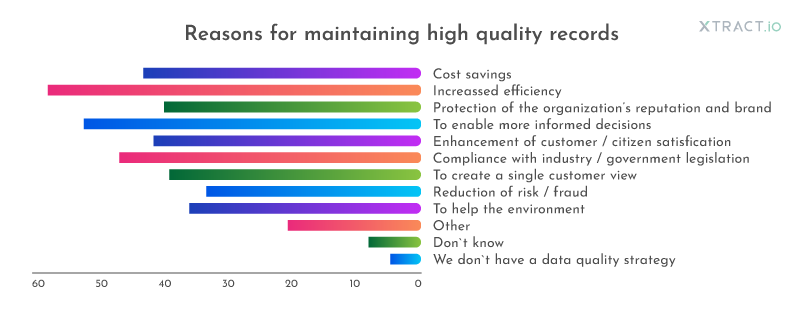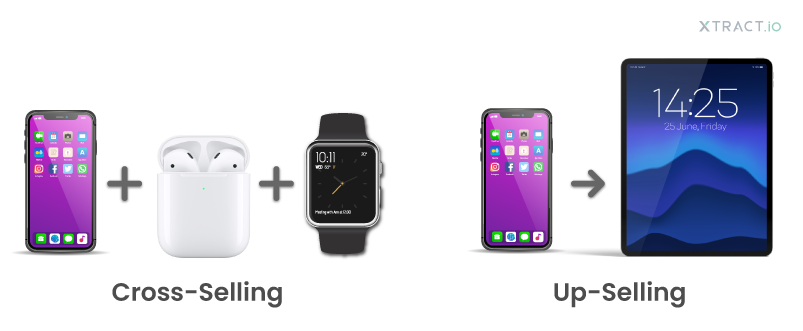Have you ever wondered why your bounce rate is so high or why attracting customers to your ecommerce platform is so difficult? You are competing with 12 to 24 million ecommerce sites. If you make a single mistake with your customer, they will quickly choose another option from the million available. So, it is critical to understand your customer and target them with the appropriate product. The only way to know them is by accurately analyzing high-quality ecommerce data.
Can data impact your ecommerce business? Data significantly influence your business, from forecasting product trends to satisfying customers and avoiding shipment problems to providing the most effective promotional strategies.
Every ecommerce seller is focused on closing more deals, running campaigns, and increasing revenue, but it is time to start paying attention to the quality of your data. It is critical to ensure data quality because invalid data can be more damaging to your business.
Can the quality of your data define your ecommerce business?
Depending on the industry, data can have several definitions. So, what exactly is ecommerce data? Data in the ecommerce industry refers to information about your products, customers, and company, such as the customer’s demography, product specifications, inventory information, mailing address, etc.
The golden rule to win a customer is to understand them. You cannot do business unless you know your customers. Every customer touch point is data that should be recorded and refreshed periodically to understand the customer’s motivating factor.
In this industry, there are numerous advantages to maintaining high-quality ecommerce data. One of them is creating a marketing campaign based on high-quality customer data analysis that can help you target the right customers and grow your business.

Another essential benefit is intelligent personalization. Almost all the customers expect customized shopping experiences from the moment they land on your website. According to an Accenture report, 33% of customers abandoned a business relationship due to a lack of personalization. Most top-tier businesses have left the one-size-fits-all shopping experience in favor of a more personalized touch.
High-quality ecommerce data is the key to personalization. It is potent that your CRM is validated and filled with the correct customer information.
Impact of poor quality data
If you believe that in this data-driven world, all you need to do to increase your ecommerce sales is to have your website optimized for SEO and listed at the top, you are wrong. While SEO ranking is essential, providing incorrect or outdated information will cost your customers’ trust.
Assume you unintentionally listed a reputable designer’s dress specifications for another dress in your catalog due to a mistake in your database. It might end up at the top of the search results, but if a customer buys it and returns it because it isn’t what she expected, the company’s reputation will suffer.
Here is a list of what could happen if your database is of poor quality.
Increased customer return rate
The customer returning a product is one of the most common issues faced by every ecommerce seller. Increased customer return rates can have a direct economic impact on your business, such as increased shipping costs, unfavorable workload, and a reduction in profit margin. If you’re wondering why customers return the products they ordered in the first place, look no further. Forrester claims that,
- 23% of returns are due to the incorrect product delivery
- 22% of returns are because the product looked different than advertised
The constant product return of multiple customers can eat away the profit margin and increase the customer churn rate. Keeping an existing customer is much less expensive than acquiring a new one. When you look at the data, it is clear that the cause for the product return is the incorrect or invalid product and customer information. It is critical to automatically validate the customer data quality using robust data quality platforms to ensure you have the correct customer address and the product information on your website.
Incorrect upselling and cross-selling recommendations
Upselling is the practice of selling customers similar but more expensive products than they had planned to purchase. Cross-selling is the practice of recommending additional products based on your customers’ interests. When you know your customer, both strategies can help you sell more products to them and maximize your ROI.

Ecommerce sellers frequently use promotional offers to sell their underperforming products alongside high-performing items to promote their products. This strategy is only possible if you analyze accurately, such as what the customer likes and which two products can be combined. Incorrect data analysis can derail your plan, affecting your brand image and leading to a promotion failure.
For example, you can not recommend crockery and cutlery if someone wants to buy branded shoes. The upkeep of a high-quality database is critical for success in the ecommerce industry.
Product shipment issues
Receiving the package a little late is an agony for the customer; imagine if the customer does not receive it at all! A slew of negative reviews will follow it, and the customer will advise their friends not to order anything from that website. According to an Oracle Retail study, 13% of customers will never order from the online retailer again if the delivery is delayed.
In the age of same-day delivery, if you delay delivering the product by more than the promised time, you risk losing the customer. What caused this to happen? Is it the seller’s fault or the customer’s? A missing package or a delay is often caused by incorrect information stored in the CRM. To avoid this, begin cleaning your CRM with an AI-powered data quality tool.
Put your trust in data quality platforms to increase customer retention!
Ecommerce is a booming industry. AI/ML is ruling the ecommerce industry by providing the best recommendation to the customer. As the industry expands, the demand for high-quality data grows exponentially.
One incorrect data feed to the AI models can bring your company to its knees. Maintaining data quality may appear complex and impossible at first. With the right data quality platform, you can concentrate on new ways to attract customers while your database is automatically validated and updated with reliable data.
If you’re unsure where to look for the best data quality platform to thrive your ecommerce business, Xtract.io has you covered with a user-friendly data quality platform, Freda. Get in touch with us for a quick demo to see how simple and powerful Freda is!







